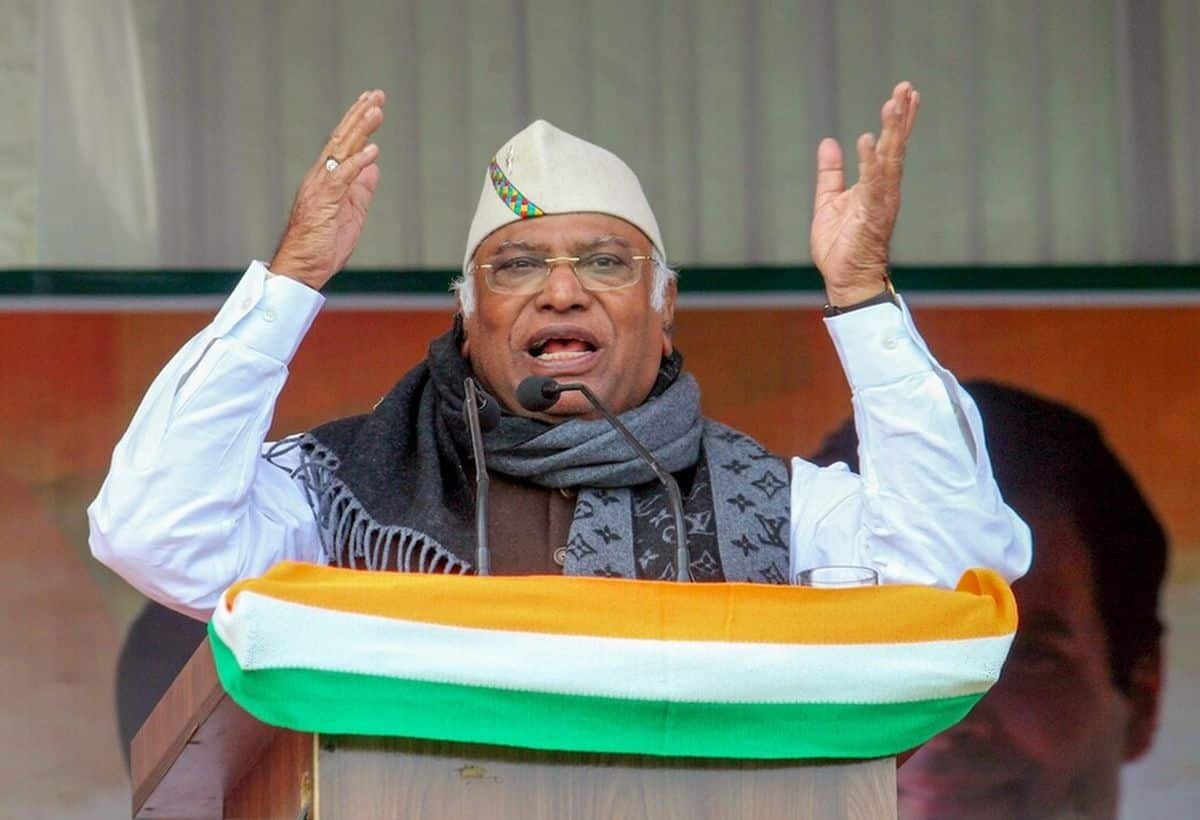Mallikarjun Kharge, the President of the Indian National Congress, has been a focal point in the ever-evolving political landscape of India. Post the Lok Sabha elections, while the Congress party and the opposition alliance aggressively pushed their narratives, the BJP appeared to adopt a more defensive stance. The social media sphere buzzed with predictions of Congress’s impending victory in Haryana, generating a palpable enthusiasm among its supporters. However, the actual outcome was a stark contradiction to these expectations, delivering a shocking setback to Congress in Haryana.
The Political Landscape Before the Elections
Before the elections, Congress and its allies presented a united front, positioning themselves as a formidable challenge to the ruling BJP. With an increased focus on local issues, welfare schemes, and grassroots strategies, the opposition aimed to capitalize on anti-incumbency sentiments. The narrative of an impending Congress victory was further fueled by social media campaigns that amplified testimonies from constituents and showcased the dissatisfaction with the current regime.
Social Media Influence on Political Perception
In the digital age, social media plays a crucial role in shaping public perception. Platforms like Twitter, Facebook, and WhatsApp became battlegrounds for narratives, with Congress supporters sharing optimistic projections regarding the party’s performance in Haryana. This rampant dissemination of information, often unverified, created a false sense of security among the party cadres and supporters alike.
Unexpected Results: Setback for Congress in Haryana
Despite the optimistic forecasts, the electoral results in Haryana revealed a harsh reality for Congress. The party faced a stunning defeat, which highlighted several critical factors that may have contributed to this outcome. Analysts suggest a disconnect between the party’s leadership and the ground realities, with voters prioritizing different issues than those emphasized by the Congress campaign.
Factors Contributing to the Defeat
- Lack of Local Leadership: Congress struggled to establish a strong local leadership that resonated with the voters in Haryana, leading to a weakened connection between the party and its constituents.
- Economic Concerns: Voters were more focused on economic stability and growth, areas where the BJP had a more convincing narrative, particularly in rural areas.
- Alliance Dynamics: The coalition of opposition parties, while united in theory, faced challenges in coordination and messaging which hindered their overall effectiveness during the campaign.
Looking Ahead: The Future of Congress in Haryana
For Congress, the results in Haryana serve as a wake-up call. Moving forward, it must reassess its strategy to effectively engage with voters and rebuild its narrative. The need for grassroots engagement and local leadership is more crucial than ever. Understanding voter sentiments and addressing their concerns directly will be essential for Congress to regain its foothold in the region.
Strategies for Revival
To turn the tide, Congress will need to employ several strategies:
- Reinforce Local Leadership: Identifying and empowering local leaders who can connect with the electorate is crucial for restoring faith in the party.
- Enhance Communication: Improving communication strategies to ensure that the voices of the constituents are heard and addressed can pave the way for a stronger public image.
- Focus on Core Issues: Prioritizing issues that resonate with the electorate, such as employment opportunities, healthcare, and education, can help Congress re-establish its relevance.
In conclusion, while the recent electoral setback in Haryana poses significant challenges for Congress, it also presents an opportunity for renewal and revitalization. By fostering robust connections with local communities and actively responding to their needs, Congress can work towards reclaiming its position in the highly competitive political arena of India.
